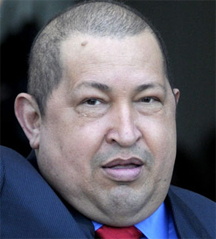BRASILIA, (Reuters) – Leaders of South America’s Mercosur trade bloc gathered yesterday to consider adding two left-leaning governments to its ranks, but the meeting was overshadowed by growing protectionism and an undeclared trade war between Brazil and Argentina that threatens to rip the group apart.
Brazil’s exports to Argentina have dropped by a fifth this year, causing friction between Mercosur’s two biggest members. Combined with internal struggles, the rift is cited by some analysts as evidence of a broader, worrying move away from trade integration by some emerging markets.

Even as it espouses regional trade, the bloc’s members in recent years have grown increasingly protectionist, and Mercosur has recently begun admitting members whose leaders are outspoken critics of free trade.
Venezuela became a member of the bloc earlier this year and Bolivia, led by leftist former cocoa grower Evo Morales, started a membership process yesterday that requires ratification by member legislatures and negotiations over bloc tariffs. Ecuador is also negotiating entry.
Still, Brazilian President Dilma Rousseff, the summit’s host, argued the importance of trade. “The continued scenario of global crisis makes it more important for us to integrate, which will make each of us stronger and more able to face the volatility of the market,” Rousseff said.
With the addition of Venezuela, Mercosur now stretches from Patagonia to the Caribbean, possesses 20 percent of the world’s oil reserves and offers a market of 275 million people with a gross domestic product of $3.3 trillion.
Venezuela’s President Hugo Chavez was wrapping up medical treatment in Cuba and skipped the event, the first working summit attended by Venezuela. Though the trip had fueled speculation that his cancer had returned, Chavez flew back to Venezuela yesterday, looking well. Brazilian business leaders have said the Mercosur group has lost its original purpose as a trading bloc and become merely a political platform for left-wing leaders.
Rousseff was due to meet later yesterday with Argentine President Cristina Fernandez to try to iron out their disagreement.
Brazilian industries are furious over trade restrictions by Argentina that have caused Brazilian exports to its third largest trade partner and the biggest buyer of Brazil’s industrial goods to plummet 21 percent in the first 11 months of 2012.
Marco Marconini, international relations spokesman at the powerful Sao Paulo industrial lobby FIESP, said, “We don’t expect necessarily a break-through with Argentina because we have gone back and forth a million times, which is disappointing.” He said Mercosur had become “a mockery” with the recent suspension of Paraguay, following impeachment of its president, and the entry of Venezuela.
“It’s not functioning as a customs union should function and it’s imperfect, but it’s not bad enough to throw it away.”
Argentina denies that it has targeted Brazilian goods and government officials have said the decline in Brazilian imports is the result of less demand due to an economic slowdown.
Brazilian entrepreneurs have lost patience with Argentina and are calling on the Brazilian government to act. Rousseff’s government, however, does not want the dispute to escalate because Brazil still enjoys a $2 billion trade surplus with Argentina.
In February, Argentina expanded import licenses and reviews for all imports in a move aimed at slowing imports to shore up its balance of payments. Its major trading partner, Brazil, was directly affected.
By April, average daily exports from Brazil to Argentina had dropped 27 percent compared with a year earlier. In May, Brazil placed temporary restrictions on Argentine imports of apples, raisins, potatoes, wheat flour and wine.
One Brazilian diplomat said Argentina’s attempt to improve its balance of payments at Brazil’s expense was unacceptable.
“If Argentina is not willing to reform and modernize its economy, but prefers to resort to selective protectionism, Brazil will eventually cease to look at it as a strategic partner,” said the diplomat, who asked not to be named because of the sensitive nature of the matter.
